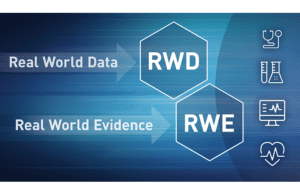
[Image courtesy of FDA]
Demand is growing for more transparency and diversity in clinical trials, according to Erin Leckrone, senior director of clinical trials at Be The Match BioTherapies. Additionally, a growing number of stakeholders are stepping forward to promote diversity. “The COVID pandemic really amplified a lot of people’s voices in this space,” she said.
A growing number of stakeholders have stepped forward to demand better diversity in clinical trials and to understand “what data is actually collected as part of the clinical trials,” Leckron said. Those players range from regulatory agencies like the FDA to clinical trial sponsors, health care professionals, patient advocacy groups and non-profit organizations, among others. “They understand that diversity isn’t just you know, ethnic or racial diversity, but it also can be gender or age, as well and, and people can respond differently depending on you know, some of the some of those factors.
Despite ongoing efforts to tackle deep-rooted inequities in clinical trial accrual among marginalized populations, progress has been painfully slow. The tide, however, is turning. Leckrone optimistically points out, “There’s definitely a lot more attention and focus on this topic, which will lead to solutions.” She adds that the FDA’s recent push is driving companies to address the issue, building much-needed positive momentum. A recent JAMA article brings to light that certain groups, such as Black, Latinx, American Indian and Alaskan Native patients, have been largely left out of precision oncology trials.
Real-World Data (RWD) to improve trial eligibility criteria

Erin Leckrone
The FDA’s 2022 draft guidance encourages sponsors to leverage various data sources, including real-world data (RWD), to work towards more diverse clinical trials. RWD are data generated and collected during routine health care delivery, such as electronic health records (EHRs) or administrative claims data. These data sources can inform the design of more representative clinical trials, particularly by guiding more inclusive trial eligibility criteria.
To improve representativeness in trial enrollment, it is essential to address eligibility criteria that disproportionately and systematically affect historically marginalized patient groups. Leckrone explains the importance of working with diverse patient communities and utilizing tools like bioinformatics to understand patient populations and model trial eligibility. Using a health equity lens, trial designers should prioritize antiracist principles and equitable outcomes for diverse populations.
By using RWD to model the effect of specific eligibility criteria on the number and diversity of eligible patients, more inclusive trial designs can be developed. Leckrone emphasizes the importance of identifying and overcoming barriers to diversity in clinical trials. For instance, financial barriers, lack of representation in the medical field, and distrust of government entities or institutions may contribute to the underrepresentation of ethnically diverse patients in clinical trials.
RWD sources can help promote diversity in clinical trials
Ensuring the quality and relevance of RWD sources is crucial for informing the application of inclusive trial design. Challenges in race and ethnicity classification, data quality, and capture can be mitigated through rigorous curation, carefully developed human abstraction methods and intentional data capture of self-reported race variables.
The strategic use of RWD holds great promise for advancing diversity in clinical trials through inclusive trial design. Leckrone states, “I think the public is demanding that level of transparency and that level of participation.” With the support of the FDA and the broader medical community, modernized eligibility criteria that prioritize equity can help ensure that clinical trials reflect the diversity of the populations they serve.
Filed Under: clinical trials, Drug Discovery



